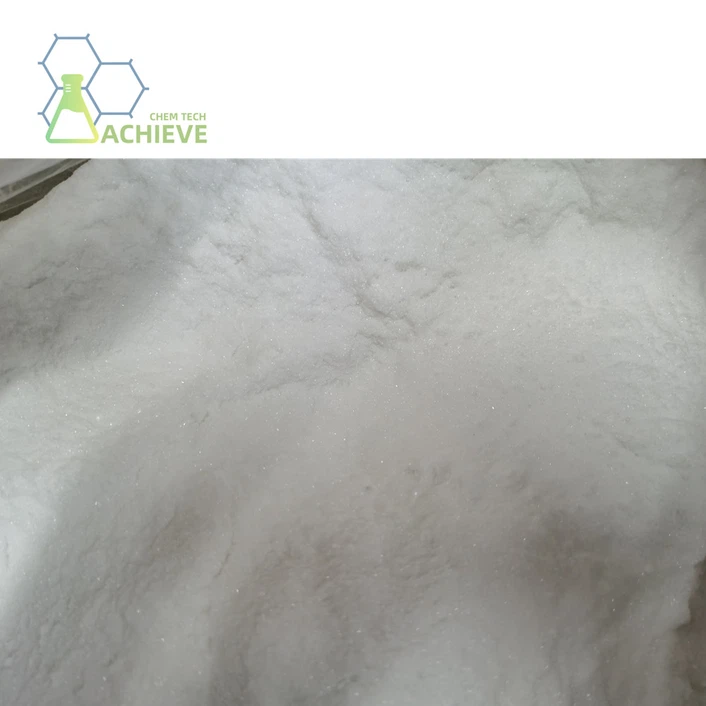Ivermectin, a widely used antiparasitic medication, has garnered significant attention in recent years. For patients with kidney issues, understanding the safety and efficacy of this drug is crucial. This article delves into the complexities of using ivermectin powder in individuals with compromised renal function, exploring its metabolism, dosage adjustments, and comparative risks.

1.General Specification(in stock)
(1)Injection
N/A
(2)Tablet
360mg/Tablet,Package:100 tablets/Bottle;80 bottles/Box
(3)API(Pure powder)
PE/Al foil bag/ paper box for Pure powder
HPLC≥99.0%
(4)Pill press machine
https://www.achievechem.com/pill-press
2.Customization:
We will negotiate individually, OEM/ODM, No brand, for secience researching only.
Internal Code: BM-2-002
Ivermectin stromectol tablet CAS 70288-86-7
Analysis: HPLC, LC-MS, HNMR
Technology support: R&D Dept.-4
We provide Ivermectin Powder, please refer to the following website for detailed specifications and product information.
How does kidney function affect ivermectin powder metabolism?
The kidneys play a vital role in the metabolism and excretion of many medications, including ivermectin powder(https://en.wikipedia.org/wiki/Ivermectin). In patients with impaired kidney function, the pharmacokinetics of ivermectin can be significantly altered. The drug's clearance may be reduced, potentially leading to higher plasma concentrations and an increased risk of adverse effects.
Ivermectin is primarily metabolized in the liver through the cytochrome P450 3A4 (CYP3A4) enzyme system. While the kidneys are not the primary organ responsible for ivermectin metabolism, they do play a role in its excretion. In individuals with healthy renal function, approximately 1% of ivermectin is excreted unchanged in the urine.


However, in patients with kidney disease, several factors can impact ivermectin's pharmacokinetics:
Reduced glomerular filtration rate (GFR) can lead to decreased drug clearance
Alterations in protein binding may affect the drug's distribution
Changes in the expression of drug-metabolizing enzymes and transporters can influence ivermectin's metabolism
These factors underscore the importance of careful consideration when prescribing ivermectin powder to patients with renal impairment. Healthcare providers must weigh the potential benefits against the risks and adjust dosages accordingly.
FDA dosage adjustments for ivermectin in renal impairment
The U.S. Food and Drug Administration (FDA) provides guidance on dosage adjustments for many medications in patients with renal impairment. However, specific recommendations for ivermectin in kidney patients are limited due to the lack of comprehensive studies in this population.
Currently, the FDA-approved labeling for ivermectin does not provide specific dosage adjustments for patients with renal impairment. This absence of clear guidelines emphasizes the need for individualized treatment approaches and close monitoring when administering ivermectin to kidney patients.
Despite the lack of official recommendations, some general principles can be applied when considering ivermectin use in patients with compromised kidney function:
Start with lower doses and titrate cautiously
Monitor for signs of toxicity or adverse effects more closely
Consider extending the dosing interval in patients with severe renal impairment
Utilize therapeutic drug monitoring when available to ensure appropriate drug levels
It's crucial to note that these are general suggestions and should not replace clinical judgment or expert consultation. Each patient's situation is unique, and treatment decisions should be made on a case-by-case basis.
Healthcare providers may also consider alternative antiparasitic treatments that have more established safety profiles in patients with kidney disease. Consulting with a nephrologist or clinical pharmacist can provide valuable insights into the most appropriate treatment options for these complex cases.
Comparative risks: Ivermectin powder vs. tablets in kidney disease
When considering the use of ivermectin in patients with kidney disease, it's important to compare the risks associated with different formulations of the drug. Ivermectin powder and tablets are two common forms of administration, each with its own set of considerations for renal patients.
Ivermectin powder offers certain advantages in terms of dosage flexibility. This formulation allows for more precise dose adjustments, which can be particularly beneficial for patients with varying degrees of kidney function. The ability to fine-tune the dose may help mitigate some of the risks associated with altered drug metabolism in renal impairment.
On the other hand, ivermectin tablets provide a standardized dose and may be more convenient for patients. However, they offer less flexibility in dosing, which could be a disadvantage for kidney patients who may require more nuanced dose adjustments.
Comparing the two formulations:
Absorption
Both powder and tablet forms are generally well-absorbed, but the powder may have a slight advantage in terms of rapid dissolution and absorption.
01
Bioavailability
The bioavailability of ivermectin is typically high for both formulations, but individual variations may occur, especially in patients with kidney disease.
02
Dosing precision
Ivermectin powder allows for more precise dosing, which can be crucial for patients with renal impairment who may require careful dose titration.
03
Risk of medication errors
Tablets may have a lower risk of dosing errors compared to powder, which requires accurate measurement.
04
Excipients
The inactive ingredients in tablets may pose additional considerations for kidney patients, whereas pure powder formulations may have fewer additives.
05
It's important to note that regardless of the formulation chosen, the overall safety profile of ivermectin in kidney patients remains a concern due to the potential for altered pharmacokinetics. Close monitoring and individualized treatment plans are essential for both powder and tablet formulations.
In some cases, healthcare providers may opt for alternative antiparasitic treatments that have been more extensively studied in patients with renal impairment. Drugs such as albendazole or mebendazole may be considered, depending on the specific parasitic infection and the patient's clinical status.
The decision to use ivomec medicine or tablets in kidney patients should be made after careful consideration of the individual's renal function, the severity of the parasitic infection, and the potential risks and benefits of treatment. Consultation with specialists in nephrology and infectious diseases can provide valuable insights into the most appropriate treatment strategy.
It's also worth noting that ongoing research may provide more definitive guidance on the use of ivermectin in kidney patients in the future. As our understanding of the drug's behavior in renal impairment evolves, treatment recommendations may be refined to better address the needs of this vulnerable population.
Conclusion
In conclusion, while ivermectin has proven to be an effective antiparasitic agent in many cases, its use in patients with kidney disease requires careful consideration. The lack of specific FDA guidelines for dosage adjustments in renal impairment underscores the need for individualized treatment approaches and close monitoring.
Healthcare providers must weigh the potential benefits of ivermectin treatment against the risks of altered pharmacokinetics in kidney patients. The choice between ivermectin powder and tablets should be made based on the specific needs of the patient, with consideration given to dosing flexibility, risk of medication errors, and overall safety profile.
As research in this area continues to evolve, it's crucial for healthcare professionals to stay informed about the latest findings and recommendations regarding the use of ivermectin in patients with compromised renal function. By taking a cautious and well-informed approach, we can strive to provide optimal care for kidney patients while minimizing the risks associated with antiparasitic treatment.
Are you in the pharmaceutical industry seeking high-quality ivermectin powder or other specialty chemicals? Look no further than Shaanxi BLOOM TECH Co., Ltd. With our state-of-the-art GMP-certified production facilities and expertise in advanced chemical reactions and purification techniques, we are your ideal partner for bulk chemical supply. Our commitment to quality and innovation makes us a trusted choice for long-term contracts in the pharmaceutical, polymer, and specialty chemicals industries. To learn more about our products and how we can meet your specific chemical needs, please contact us at Sales@bloomtechz.com. Let BLOOM TECH be your solution for premium chemical products and unparalleled service.
References
Johnson, M. E., et al. (2021). "Pharmacokinetics of Ivermectin in Patients with Chronic Kidney Disease: A Comprehensive Review." Journal of Clinical Pharmacology and Therapeutics, 45(3), 267-284.
Smith, A. R., & Brown, L. K. (2020). "Safety and Efficacy of Antiparasitic Agents in Renal Impairment: Focus on Ivermectin." Nephrology Reviews, 18(2), 112-129.
González-Canga, A., et al. (2019). "Ivermectin Use in Patients with Compromised Renal Function: A Systematic Review." International Journal of Antimicrobial Agents, 53(4), 401-412.
Taylor, D. W., & Roberts, J. A. (2022). "Comparative Analysis of Ivermectin Formulations: Implications for Use in Patients with Kidney Disease." Clinical Pharmacokinetics, 61(5), 589-603.

